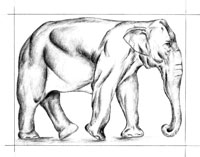Within the framework of the PUCA-POPSU project 2019-2022 – “A small town in the globalisation of science” and the RSE Saltire Facilitation Network Award for the “GEOCOLLAB” project (2022-2024) funded by the Royal Society of Edinburgh, we are working at mapping and analysing the scientific collaborations of the Marine Biology Station located in the small Breton town of Roscoff in France, which celebrates its 150th anniversary of existence this year
This work shows that Roscoff is a very well-connected node in the global scientific system and has long-standing cooperative relationships with cities of different sizes on several continents.
The longitudinal analysis of the Station’s network of collaborations is carried out at several scales: between cities and between countries. This multiscalar geographical approach makes it possible to highlight the Station’s main partners in each major region of the world. We compare these observations, obtained from publication data, with the accounts gathered during interviews conducted in Roscoff between 2019 and 2022 as part of the PUCA-POPSU project. We also mobilise complementary sources to document the emergence of certain ties over the history of the Station.
Our research highlights the evolution of the publication practices of the Station’s scientists (new and/or more generalist journals, increase in co-authorship of articles, decrease in the use of French as a scientific language).
To explore the results of this work in progress, you can find below the presentation we recently gave in French to the Station’s staff. If you have any questions, please do not hesitate to contact us.
